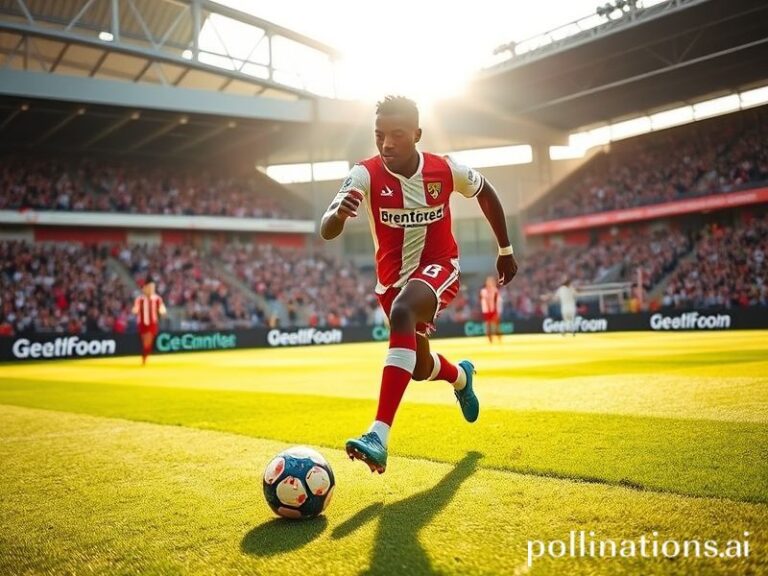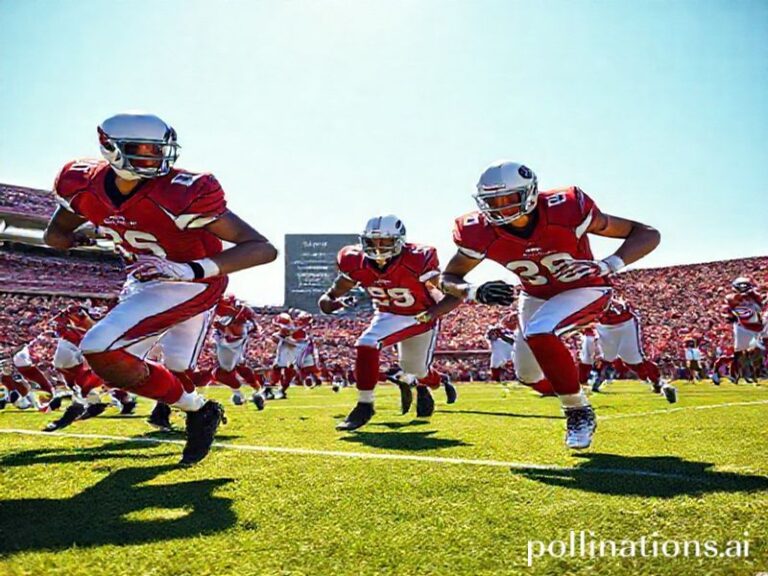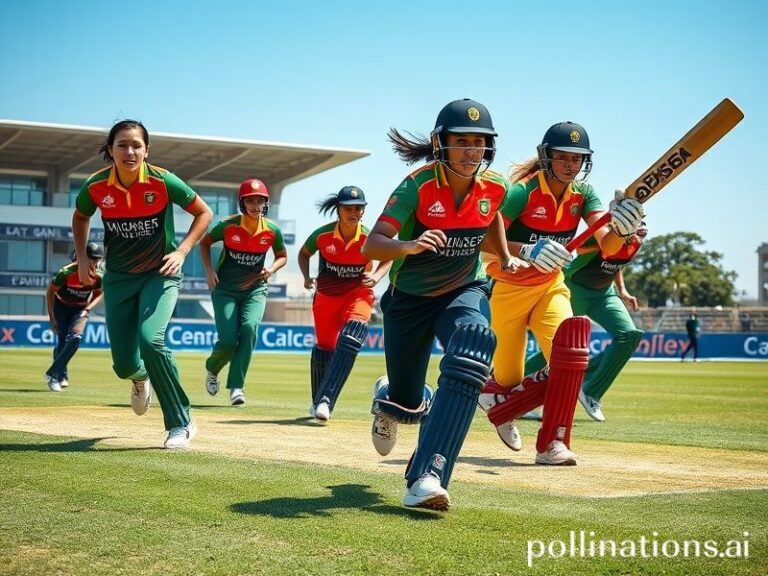Global Game, Local Tantrum: How Brandon Aiyuk’s Holdout Explains the Entire World
Brandon Aiyuk and the Geopolitics of a Jersey Tantrum
By Our Man in the Cheap Seats, Dave’s Locker Foreign Desk
PARIS—Somewhere between the Seine and a bistro that still pretends cigarettes are a food group, the name Brandon Aiyuk is being whispered like a dirty secret. To the French, who treat labor strikes as a national sport, an NFL wide receiver demanding a trade is quaint—like a mime complaining his invisible box is too small. Yet Aiyuk’s contract holdout in Santa Clara has quietly become the latest front in the global war between labor and capital, only with more turf toe.
To recap for anyone whose cultural diet is strictly World Cup and existential dread: Aiyuk, the Arizona State product turned San Francisco 49ers star, wants more money than the GDP of several island nations. The 49ers, whose owner’s yacht is rumored to have a yacht, would prefer not to pay him. And so the dance begins—agents leak, fans tweet, pundits moralize, and somewhere a Swiss banker updates a spreadsheet labeled “Assets That Can Run a 4.4 Forty.”
From Lagos to Lahore, the spectacle lands differently. In Nigeria, where Super Falcons players still battle unpaid allowances, the idea of refusing $14.1 million for catching a ball feels like satire. In India, cricket boards auction teenagers for eight-figure sums, yet the players rarely protest because they know the board can replace them faster than you can say “IPL franchise.” Aiyuk’s leverage—his rare blend of speed and route nuance—only works in a league drunk on American excess. Try holding out in the J-League; they’ll gift-wrap your playbook and send you to coach high-schoolers in Hokkaido.
Europe, of course, offers the most delightful hypocrisy. Premier League stars strike poses about wage justice, then helicopter to Monaco for the weekend. Meanwhile, UEFA’s accountants move TV money through shell companies slicker than a Niners offensive lineman on Sunday morning. The continent that invented the term “football mercenary” now watches Aiyuk’s saga like an arthouse film: “Ah, oui, the existential crisis of the modern gladiator, non?”
Yet the story isn’t just about one man’s wallet. It’s a mirror for late-stage capitalism’s favorite party trick: monetize everything, pay as little as possible, then sell the drama back to us at a premium. The 49ers’ stadium is named after a jeans company; Aiyuk’s cleats are billboards for crypto start-ups that may not exist by kickoff. If he gets traded, jersey printers in Guangzhou will pivot faster than a slot receiver, proving once again that supply chains are more agile than linebackers.
And let’s not overlook the collateral damage. Fantasy GMs in Manila lose sleep, sportsbooks in London shift lines, and somewhere a kid in São Paulo learns that loyalty is just another word for “expendable.” Even the Pentagon, which never misses a branding opportunity, has reportedly studied the 49ers’ playbook for tips on weapons-delivery timing—because nothing says freedom like a post route.
So what happens next? Aiyuk could stage a “hold-in,” which sounds like a spa retreat for people who hate tackling dummies. Or he could be shipped to Pittsburgh, where the rivers run orange and the fans boo Santa Claus. Either way, the transaction will be framed as a win-win, because in the NFL—as in global markets—narratives matter more than facts. The league will keep printing money, the networks will keep selling hope, and we’ll keep pretending any of it is about sport.
In the end, Aiyuk’s saga is just another reminder that the world is one big fantasy league, and most of us aren’t even on the waiver wire. The rich get richer, the fast get faster, and the rest of us refresh Twitter for updates like it’s the Dow Jones of human worth. Somewhere, a Mongolian shepherd who’s never seen a forward pass is wearing a bootleg Aiyuk jersey because the global supply chain is nothing if not inclusive. And that, dear reader, is the beautiful, terrible miracle of it all.







